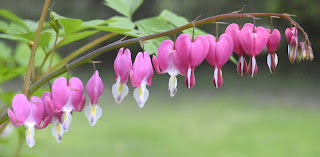Recently I read The Buddhist on Death Row - How One Man Found Light in the Darkest Place by David Sheff. It's an excellent book...one I would highly recommend.
From the inner cover, the book is described as, "Jarvis Jay Master's early life was a horror story. He grew up in a house filled with crack, alcohol, physical abuse, and men who paid his mother for sex. He and his siblings were split up and sent to foster care when he was five and he progressed quickly to juvenile detention, car theft, armed robbery, and ultimately San Quentin State Prison. While in prison, he was set up for the murder of a guard and convicted - which landed him on death row. He's been there since 1990."
Having been involved in a prison ministry program and corresponded with many people since March 2013, many of the references in the book made sense to me - the solitary confinement (or "the hole"), the restriction of items that could be used as weapons, lockdowns, and more.
I was so impressed with Jarvis Master's ability to spiritually grow so much in such a challenging place, and - even more so - his desire to want to help others on death row in San Quentin. Some of the parts of the books that were particularly insightful for me are below:
- Hurt people hurt people. ("Warlock," former Crips shot-caller, in a GRIP (Guiding Rage into Power) class at San Quentin State Prison.
- "Deep sadness came over me as I watched these powerful men lift hundreds of pounds of weights over their heads. I looked around the yard and made the gruesome discovery that everyone else had the same deep gashes - behind their legs, on their backs, all over their ribs - evidence of the violence in our lives..."
- What have I done with my life? Have I been of benefit or have I caused harm?
- The judge said, "If people don't want children, they shouldn't have them. Apparently, his mother didn't know how not to have them." This made him think If my mother shouldn't have had me, I should never have been born; the world would have been a better place without me. He felt he had been born useless.
- As hard as it is to accept, this is where you have to be now. You may not see it, but you are fortunate to be in a place where you can know humanity's suffering and learn to see the perfection of all beings and yourself.
- Continue facing your pain, because the more you free yourself from being held back by your past, the more you can focus on others.
- Studies have shown that solitary confinement is psychologically damaging....Courts have ruled that solitary confinement and cruel and unusual punishment. A UN report concluded that a stay longer than 15 days in isolation amounts to torture. Jarvis had been in the hole for 22 years.
- In marriage, cultivate generosity, kindness, enthusiasm, discipline, wisdom, patience, and most of all, compassion, not only for yourselves but for all beings. The most important thing is for you to be kind to each other.
- The judge who sentenced Jarvis to death row didn't believe in the death penalty but her job required her to ignore her conscience and follow the law. When Judge Savitt sentenced him she acknowledged that deciding the punishment was the most difficult decision she'd ever faced.
- Buddhism teaches you there's always another way.
- The smallest things Jarvis makes the biggest thing over (like a leaf on the ground) and the biggest things he sees as nothing at all.
- He thought about all the suicides he's heard about while he's been on death row.
- Regarding the guards: I was thinking how it must make them feel to work all day in a place where they're hated. They're prisoners too.
- Hope and fear are two sides of the same coin. Both are traps. Both rob you of the present moment.
- A highlight for Jarvis was when he was able to take 3 steps on the grass. He hadn't walked on the grass in 30 years.
- Mantra: How can I be helpful?
- Life is hard for everyone - we're all suffering together. We cause so much of our own suffering.
- Your practicing in a place where you're living among the suffering of lives lost, dreams lost, families and futures lost; the suffering of remorse and regret, old age and dying, the suffering of guards, and the suffering of pain and causing pain.
- My religion is very simple. My religion is kindness. (Dalai Lama)
- In Buddhism, just as in Christianity, there is a notion of hell. In Buddhism, it's not a literal place - no fire and devil - but a state of mind where there's unceasing suffering.
- Comparing yourself to others, you never win.
- How will I use today? Will I be asleep or awake? What will I notice? How can I help? Whose life will I touch?
- In the end, these things matter most: How well did you love? How fully did you live? How deeply did you let go? (Gautama Buddha)





































































